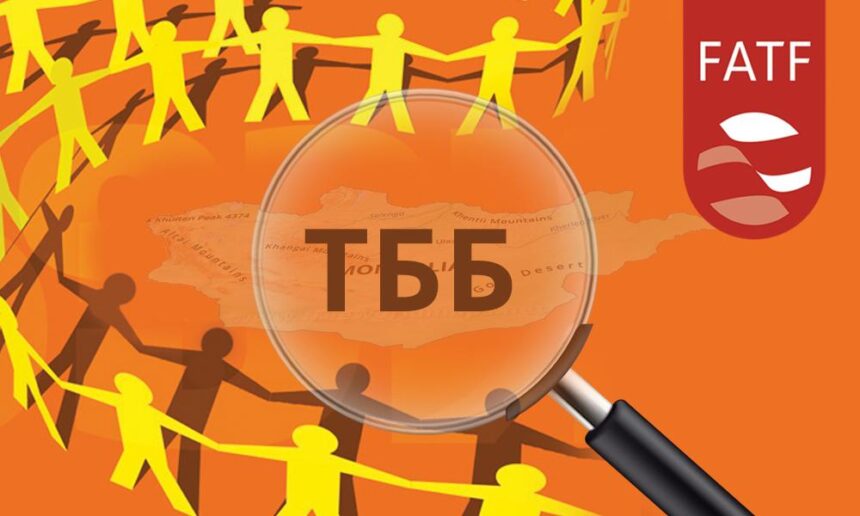Two months ago Mongolia has been included to the controlled Grey list of the intergovernmental organization Financial Action Task Force on Money Laundering (FATF) which was founded to combat money laundering and terrorism financing. The reasons for the inclusion of Mongolia in the FATF’s list of high-risk countries in this area was explained to readers in the “Grey government”, “Grey court”and “Grey society” articles.
Currently, the Mongolian government has announced its commitment to leave the Grey list not only to citizens and the public, but also to other countries around the world. Last month, Mongolian lawmakers fired the chairman of the Bank of Mongolia and the Financial Regulatory Commission and replaced their deputy’s.
The FATF’s recommendations against money laundering and terrorism financing have long been recognized as an internationally acknowledged standard and an important tool for effective actions against the misuse of the financial system. There are 9 special and 40 general Recommendations against money laundering and terrorism financing in almost every branch of economy, society and politics of the country.
Among them, Recommendation 8 is directly related to civil society and the non-profit sector. Also each of the 40 FATF recommendations is designed to assess the activity of the country with the following technical compliance ratings: compliant – C, largely compliant – LC, partially compliant PC, non-compliant – NC.
Behind the Grey list
According to this standard, Mongolia was twice assessed in 2007 and 2017. Both assessments concluded that the non-profit sector of Mongolia was PC (partially compliant). After a recent additional assessment was conducted, the follow-up was released two months ago. The 2017 report recommends evaluating each sector, especially the most at-risk non-profit sector and conducting a full assessment on this sector. However, surprisingly Mongolia still not evaluated its non-profit sector, which also was expressed in the recent follow-up.
The FATF reports on each country and according to the report on the non-profit sector of Mongolia the following risks were found:
- the risks of the non-profit sector are not fully assessed
- no information was provided to the most at-risk NGOs
- the non-profit sector’s control is uncertain
- the non-profit’s sanctions are not clear and not appropriate
- not enough knowledge and skill to research the non-profit sector
- not provided the materials related to non-profit sector and its previous audit evidence and references
Behind the FATF’s evaluation
Mongolia should take the above-described assessment serious and be careful with it. The requirements of the FATF and other intergovernmental organizations put forward to NGOs are demanding to limit the space of civil society, and especially governments should constantly control the NGOs.
Generally speaking, there is a tendency to limit the space of NGOs around the world. Researcher B. Hayes (2017) said that international anti-terrorism laws, especially those required by the, were initially violating human rights because did not provide democratic participation and were released too quickly. B. Hayes also said that cases of money laundering and financing of terrorism through NGOs are rare in the world. However, the number of countries that are taking advantage of the FATF’s recommendations and changed laws on NGOs and restricting the voice of civil society is growing. This is true for such countries as Bosnia and Herzegovina, Croatia, Macedonia, Hungary, India, Kazakhstan, Kyrgyzstan, Poland, Serbia and Tajikistan (Hayes, 2017).
In 2012, in 159 countries assessment associated with FATF’s Recommendation 8 was conducted by state monitoring and international institution. In this assessment, 85% of countries found that they were either NC (non compliant) or PC (partially compliant). It is noteworthy, that even though many Central European countries have changed their money laundering and terrorism financing laws, the assessment did not comply with Recommendation 8 as well. In 2007, when assessment was conducted for the first time in 158 countries, non-profit sectors of only five countries (Belgium, Egypt, Italy, Tunisia and the United States) were concluded as C.
This happened because of the growing suspicion of funding for terrorism through a non-profit organization since the September 11 attacks. At the time, US president George W. Bush had publicized a message condemning NGOs. As a result of studying non-profit laws and regulations, international organizations began to demand the prevention of the risks of abuse of such organizations for the financing of terrorism. It has led to a wave of changes in civil society laws around the world. However, in many countries anti-money laundering and anti-terrorism laws have not improved. The above-mentioned 2017 report included 89 countries. Only four of them (Armenia, Hong Kong, USA and UK) were evaluated as C in Recommendation 8. Sixty countries were evaluated either as PC or NC.
Implementation of FATF recommendations does not require a single change in NGO-related legislation, but rather a comprehensive assessment of this area. Thereafter, it is necessary to meet and work with each of the organizations that have a high risk of money laundering and terrorism financing.
2019.12.18
Trans. by Riya.T and Sungerel.U












